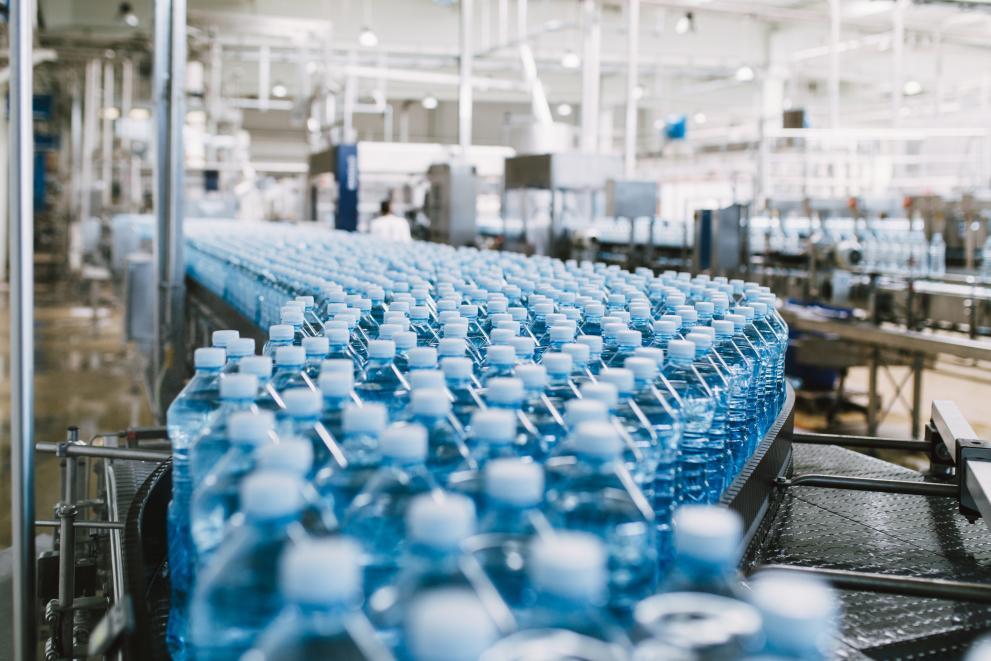The European Commission has opened a public consultation on new rules to calculate, verify, and report recycled content in single-use plastic (SUP) beverage bottles—including content derived from chemical recycling. These rules are a critical step toward enabling chemical recycling across the EU and helping companies meet ambitious recycled content targets set by the Single-Use Plastics Directive (SUPD).
By supporting emerging recycling technologies and encouraging investment, the new rules aim to boost the competitiveness of the EU’s chemical and manufacturing industries while promoting sustainable innovation. The initiative is part of the EU Chemicals Industry Action Plan, which seeks to drive the sector’s transition toward safer and more sustainable production.
Chemical recycling offers an important solution when mechanical recycling isn’t feasible—such as in the production of food-grade packaging. The Commission’s proposal will create a harmonized calculation methodology for recycled content, ensuring transparency and consistency. The rules follow the “fuel-use excluded” approach, meaning plastic waste used for fuel or energy recovery will not count as recycled material.
To limit the administrative burden, verification will be conducted annually by third parties at the most complex stages—mainly during chemical recycling. SMEs will benefit from lighter requirements, with checks every three years. National authorities will conduct risk-based audits, while companies must monitor their partners’ declarations.
This is the EU’s first regulatory framework for chemically recycled content, and it may serve as a model for future rules across sectors like packaging, automotive, and textiles.
Next Steps:
Stakeholders are encouraged to submit feedback via the EU Have Your Say portal by 19 August 2025. The final rules are expected to be adopted by autumn 2025, following a vote by the technical committee of Member State representatives.
Background:
Under the SUP Directive, the EU targets 25% recycled PET content in SUP beverage bottles by 2025 and 30% in all SUP beverage bottles by 2030. The Commission is implementing these targets through a two-phase approach:
Want to exchange views with industry peers?
This topic will be a key point of discussion at the 7th Advanced Plastics Recycling Conference, taking place November 27–28, 2025 in Berlin. The event will bring together recyclers, regulators, brands, and technology providers to explore regulatory frameworks, innovations, and investment strategies shaping the future of plastic recycling.
📩 For more info: general@bcf-group.eu | 🌐 www.bcf-event.com | 📞 +420 776 543 575
By supporting emerging recycling technologies and encouraging investment, the new rules aim to boost the competitiveness of the EU’s chemical and manufacturing industries while promoting sustainable innovation. The initiative is part of the EU Chemicals Industry Action Plan, which seeks to drive the sector’s transition toward safer and more sustainable production.
Chemical recycling offers an important solution when mechanical recycling isn’t feasible—such as in the production of food-grade packaging. The Commission’s proposal will create a harmonized calculation methodology for recycled content, ensuring transparency and consistency. The rules follow the “fuel-use excluded” approach, meaning plastic waste used for fuel or energy recovery will not count as recycled material.
To limit the administrative burden, verification will be conducted annually by third parties at the most complex stages—mainly during chemical recycling. SMEs will benefit from lighter requirements, with checks every three years. National authorities will conduct risk-based audits, while companies must monitor their partners’ declarations.
This is the EU’s first regulatory framework for chemically recycled content, and it may serve as a model for future rules across sectors like packaging, automotive, and textiles.
Next Steps:
Stakeholders are encouraged to submit feedback via the EU Have Your Say portal by 19 August 2025. The final rules are expected to be adopted by autumn 2025, following a vote by the technical committee of Member State representatives.
Background:
Under the SUP Directive, the EU targets 25% recycled PET content in SUP beverage bottles by 2025 and 30% in all SUP beverage bottles by 2030. The Commission is implementing these targets through a two-phase approach:
- A methodology for mechanically recycled PET (based on Implementing Decision 2023/2683).
- Expanded rules covering all recycling methods—including chemical recycling—through this draft act.
Want to exchange views with industry peers?
This topic will be a key point of discussion at the 7th Advanced Plastics Recycling Conference, taking place November 27–28, 2025 in Berlin. The event will bring together recyclers, regulators, brands, and technology providers to explore regulatory frameworks, innovations, and investment strategies shaping the future of plastic recycling.
📩 For more info: general@bcf-group.eu | 🌐 www.bcf-event.com | 📞 +420 776 543 575
